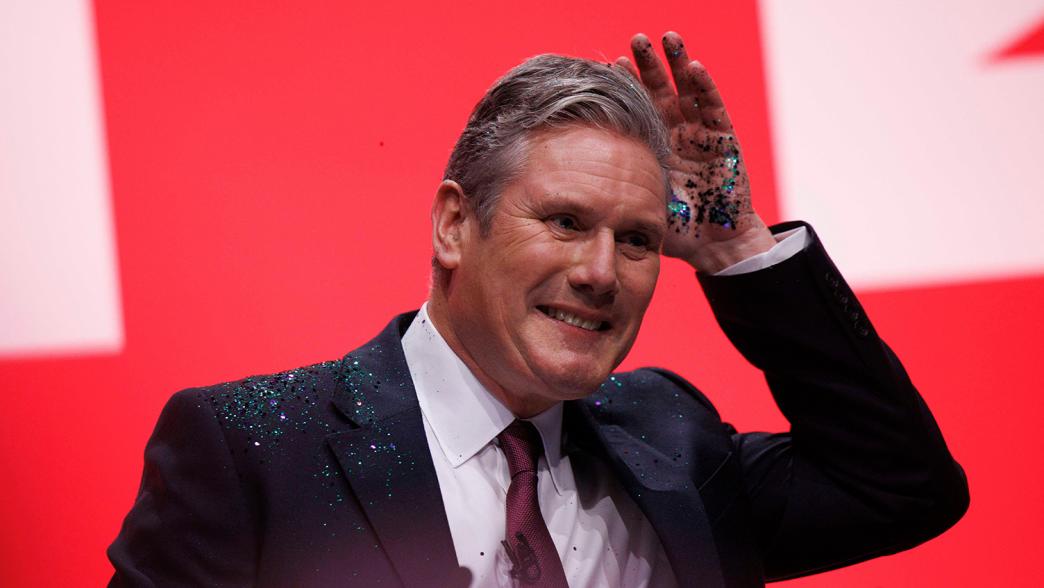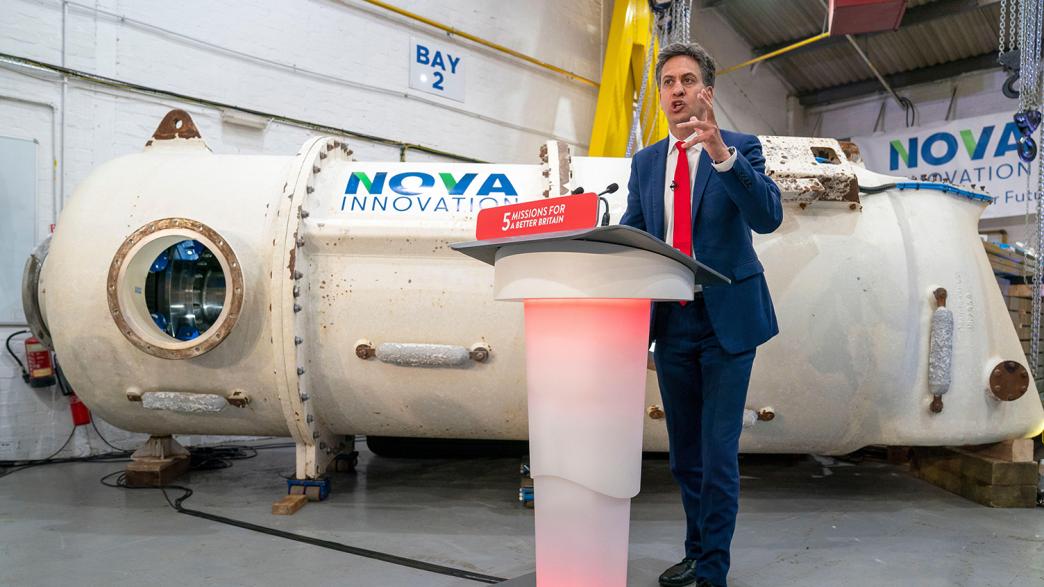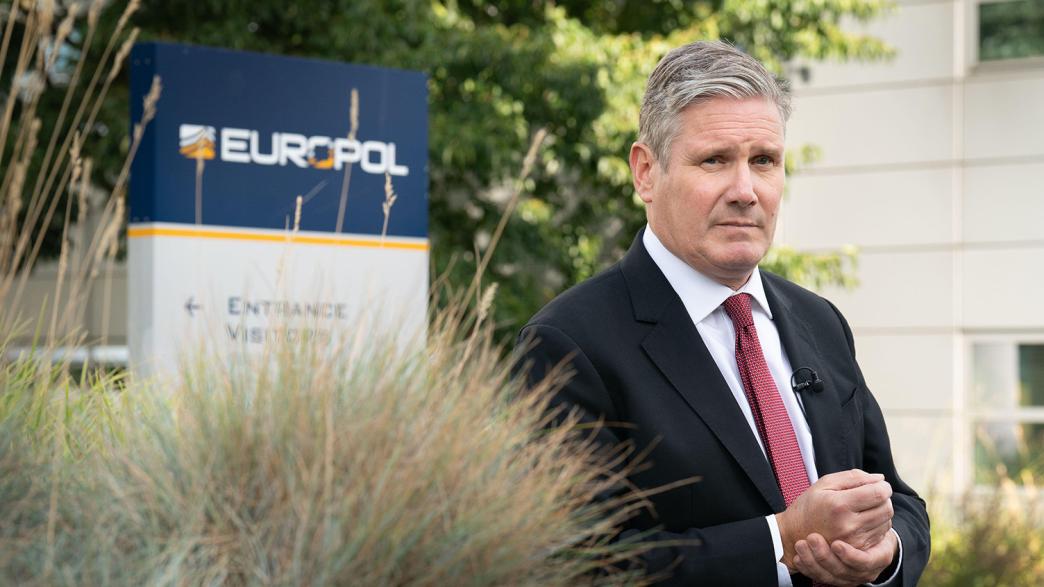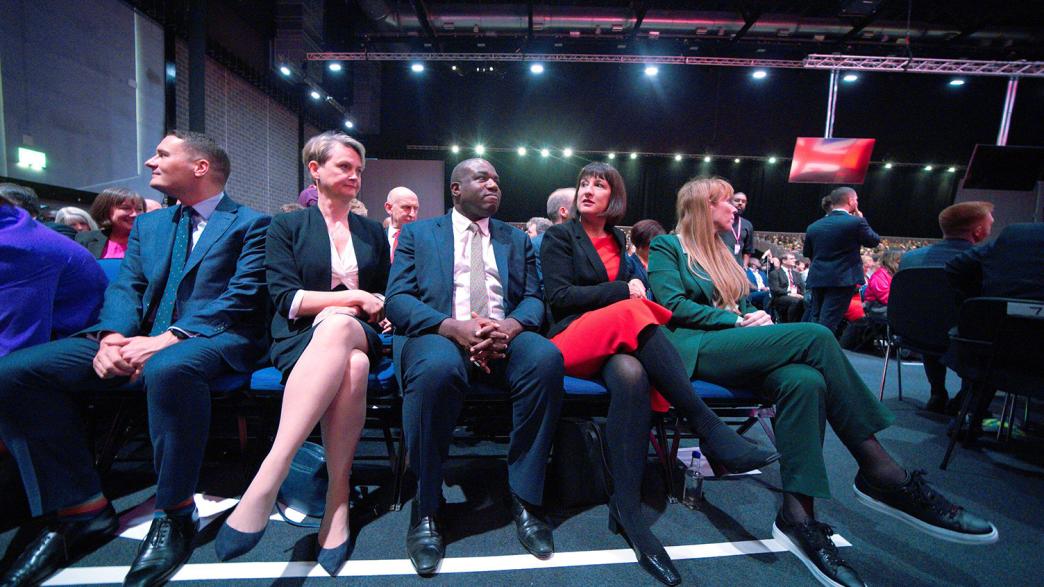Six key takeaways from the Labour conference in Liverpool
As the glitter settled on Keir Starmer's speech, what key themes emerged from Labour's annual gathering?

The IfG expert team spoke at fringe events, toured the exhibition centre and watched the big set piece speeches – here are their six takeaways from the Labour Party conference.
1. Labour has a vision – but is still light on policy detail
Keir Starmer’s leader’s speech was big on vision. He pledged to deliver a ‘decade of national renewal’ and described in stark terms the struggle that working people face right now. He contrasted the ‘sticking plaster politics’ of the current government with the possibility of a Labour government that would give ‘Britain its future back.’ And it was a speech confident on Labour’s record – namechecking past policy successes and invoking the change the governments of 1945, 1964 and 1997 brought. Starmer captured something that was present more widely at Labour’s party conference – a sense of optimism and possibility about the future that was harder to find at the Conservative conference.
But in Starmer’s speech and throughout conference, the bridge between where the country is now, and where Labour wants to take it, was harder to discern. There was some policy detail – Starmer mentioned 1.5 million new homes, new towns, technical colleges and planning reform. Shadow chancellor Rachel Reeves also gave some detail in her speech, such as supply side reform, legislation for OBR forecasts alongside any major fiscal event, and the reaffirmation of VAT on private school fees.
On public services we heard a lot about reform, but less about how Labour will achieve it without raising investment. Opposition is not a place to work up every policy in minute detail. But in 1997 – one of the victories Starmer invoked – Labour benefited from detailed work on clear policy pledges on the minimum wage, devolution and class sizes. Starmer and his party need to convince the electorate that a future Labour government would have the ideas and plans to deliver change. They are still some way short of achieving that, and will need to narrow the gap between Labour's pitch for power and the scale of policies currently on offer.

There was little policy detail in Keir Starmer's speech – other than mentions of 1.5 million new homes, new towns, technical colleges and planning reform.
2. Labour is prepared to do battle over net zero
Net zero was a big feature of the Labour conference, with numerous fringe events. Whereas the Conservatives were debating the “whether” of net zero, Labour was focusing much more on the "how" – in particular how to deliver the grid expansion necessary to achieve its clean energy mission.
Both Starmer and shadow net zero secretary Ed Miliband seemed happy to take on Rishi Sunak’s weaponisation of net zero the week before, with Starmer arguing that “climate change is an opportunity we can’t pass up” and insisting the UK should “speed ahead”. Both rejected Sunak’s argument that moving more slowly on net zero would save consumers money, arguing that energy bills had risen because of the failure to invest in clean energy.
There was also perhaps a clue to Labour’s strategy for countering Conservative attacks on the costs of net zero – focusing on the benefits in terms of lower energy bills and supporting those in fossil fuel industries to move into other jobs. Miliband said that Labour would do “whatever it takes” so that oil and gas workers could be the people to “build our clean energy future”, while GB Energy would invest in “local, renewable power owned by local people”.

When it came to filling in the detail of Labour’s net zero plans, Miliband gave some sense of the vision behind GB Energy, if not much more on how it would work. But although he talked about “the greatest investment in homegrown energy in British history”, the date for reaching the committed investment of £28bn a year seems to have been pushed back further, to the end of the parliament. Still it remains the only area where Labour is willing to countenance borrowing for new investment.
3. Labour is still vague about its version of 'levelling up'
Angela Rayner, the new shadow secretary of state for levelling up, housing and communities, said little on regional inequalities during her speech on Sunday, focusing instead on two other aspects of her brief: housing and the future of work. This was indicative of a broader trend across the conference: Labour has not yet decided, or at least articulated, what its version of ‘levelling up’ will look like. Labour party chair Anneliese Dodds emphasised at one IfG fringe event that addressing regional inequalities is a thread running through Keir Starmer’s five missions. But there was little evidence of this in the major speeches on the main stage.
One area where Labour’s plans are clearer is English devolution. Paula Barker, the shadow minister for devolution and the English regions, spoke about the Take Back Control Bill – legislation to underpin further devolution at the start of a Labour government – at another of our fringe events. And detail released from the National Policy Forum said that a Labour government would give places a formal right to request powers devolved elsewhere, in line with recommendations from Institute for Government research. Further work is required to set out how a Labour government would deliver further devolution in practice, but it is welcome that progress made by the current government over the past decade or so will be built upon and developed whichever party wins the next election.

A Labour government would give places a formal right to request powers devolved elsewhere.
4. Little mention of Brexit – but ambitions to deliver a better deal
Conference discipline meant that Brexit got few mentions. A noisy demonstration outside was not matched from the conference floor or even from the fringes, with the exception of one sponsored by the EU Delegation to the UK. Shadow foreign secretary David Lammy toured parties assuring those present that relations with Europe were the UK’s number one foreign policy priority.
Rachel Reeves said that “Brexit, without a plan” was one example of the mayhem caused by Conservative governments. Keir Starmer also allowed one mention of Brexit into his conference speech – in his litany of Conservative delusion misleading voters, his most substantive point was when he declared: “When they told you – to your face – that Brexit would only bring benefits to your business.” In other words, this is not to say that Brexit was wrong but that this Brexit is not working – and that a Labour government could and would make it work better.
But as repeated reports have made clear, making life easier for business is a very difficult proposition while still ruling out re-joining the single market and customs union. The interesting question, if Labour get into government, is what happens if its attempts to improve Boris Johnson's deal hit a brick wall.

5. Labour is still committed to overhaul integrity and ethics in government
Labour still sees cleaning up government as a vote winner – but the devil is in the detail
In her time as shadow Cabinet Office minister, Angela Rayner placed a large focus on the question of improving ethics in government. But when she took on a new role in Labour’s September reshuffle, there were questions as to whether this issue was still a priority for the opposition. Nia Griffiths MP, shadow Cabinet Office minister and a speaker at our panel event on this very question, was clear: improving ethics and standards in government is an absolute priority for the Labour party, and it wants to work with interested organisations to develop their plans further.
Labour is still committed to the Ethics and Integrity Commission that Rayner described in a speech at the Institute, and indeed the theme of tackling low standards and corruption was common across the conference, with shadow chancellor Rachel Reeves announcing a Covid-19 corruption commission. Details, however, are thin on the ground – exactly who would sit on either of these commissions, what their legal base will be and how they will work with other existing bits of government remains to be seen. It is clear, though, that despite Rayner’s move, Labour still see integrity and ethics as a way to differentiate themselves from the Conservatives, and therefore as a key plank of their pitch to voters
6. This was a busy conference – but one without a buzz
The tragic events in Israel and Palestine inevitably saw a sombre tone to Labour’s conference. Foreign affairs fringes became dominated by the question of the Middle East, and pro-Palestine protests outside the secure zone echoed what was also playing out on the streets of London.
Starmer and the Labour frontbench were swift and clear in their response, demonstrating unity – and the discipline the leadership has imposed. This was also true of the wider conference: Labour frontbenchers, MPs and prospective candidates all seemed focused on maintaining the party line and avoiding controversy, whether in fringe meetings or receptions.
With the increased attendance of businesses, lobbyists, foreign diplomats and other external groups who turned up in droves, this was also a busy conference. The poll lead that Labour has built up was discussed, and acknowledged, but ‘no complacency’ was a line repeated more than once. It was clear that Starmer’s team wanted to take nothing for granted and wanted the conference to be seen as boring – rather than exciting for the wrong reasons.

Starmer’s speech trod a similar path, though in the immediate aftermath of the Labour leader being covered in glitter a mood of quiet expectation shifted to one of more fevered support. In contrast to the Conservatives, the main hall, the overflow auditorium and other fringe venues showing the speech were all full to bursting. And for most Labour MPs and party members, Starmer delivered and the conference had been a quiet success. But throughout the four days in Liverpool, there remained a sense that more work will be needed to convince voters of what exactly a future Labour government would really mean for them.
- Keywords
- Levelling up Ethical standards Climate change NHS Official opposition General election Party conferences
- Political party
- Labour
- Public figures
- Keir Starmer Angela Rayner
- Publisher
- Institute for Government